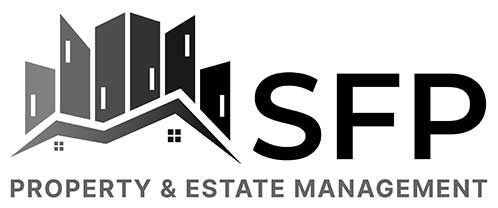Right To Manage
What is the Right to Manage?
The right to manage or RTM allows apartment owners to take control of block management from freeholders, and to appoint their own block management agents and set the agenda for the standard of maintenance and services and the level of service charges.
The members of the RTM company have one vote per apartment and it is this democratic process that allows the needs and priorities of the apartment owners to be met, rather than those of the block management company employed by the absentee freeholder.
SFP can offer the option of a NO WIN NO FEE RTM application to ensure there is no risk to leaseholders. With a 100% success rate to date, why continue to pay over inflated rates for a less than adequate service?
Benefits of Right to Manage
– Greater Control: RTM provides leaseholders with the power to make decisions regarding the management and maintenance of their property. It allows them to have a say in matters such as service charges, repairs, insurance, and general upkeep. This increased control ensures that the property is managed in a manner that best suits the needs and preferences of the leaseholders.
– Cost Efficiency: By exercising the Right to Manage, leaseholders can potentially achieve cost savings. They have the ability to select and appoint their own managing agents or, in some cases, manage the property themselves. This allows for more competitive pricing and the opportunity to negotiate favorable contracts, resulting in potential cost reductions.
– Improved Service Standards: Leaseholders who take over the management of their property through RTM have a vested interest in ensuring the delivery of high-quality services. They can set service standards, monitor performance, and take action if the managing agent fails to meet expectations. This can lead to improved maintenance, better response times, and overall enhanced service levels.
– Transparency and Accountability: RTM empowers leaseholders with the right to access information relating to the management of their property. This promotes transparency and accountability, as leaseholders can scrutinize financial records, review contracts, and participate in decision-making processes. It helps prevent potential mismanagement and ensures that the property’s affairs are conducted in a transparent manner.
– Long-Term Stability: Taking control of the management functions through RTM can provide leaseholders with greater long-term stability. They can prioritize investments, plan for major repairs or refurbishments, and implement maintenance programs more efficiently. This proactive approach can contribute to the preservation and enhancement of property values over time.
– Community Engagement: RTM can foster a sense of community and collaboration among leaseholders. It allows them to come together, form a residents’ association, and work collectively towards common goals. This engagement can lead to the development of a stronger community spirit, shared responsibility, and a greater sense of belonging.
You could receive a higher standard of services and lower service charges
Where SFP has taken over buildings using the RTM process they have been able to deliver cost savings of between 10% and 30%, whilst also improving the level of building maintenance and services enjoyed by residents and apartment owners. There has not been one instance where the annual charge has increased, compared to the actual expenditure incurred by the previous agent in the previous year.
For example, we could help cut the cost of insurance. Where one successful block owner successfully achieved the Right to Manage, the insurance premium was reduced from £31,000 to £17,000 per annum – a saving of £14,000! Savings were also achieved in re-tendering cleaning, gardening and general maintenance contracts.
Contact us now to organise a no-obligation consultation
Right To Manage FAQs
How long does the Right to Manage process take?
The duration of the Right to Manage process can vary depending on various factors, such as the complexity of the building, the cooperation of leaseholders, and any potential objections or disputes. On average, the process can take several months to complete.
Can the landlord object to the Right to Manage?
The landlord can raise objections to the Right to Manage, but they must be based on specific grounds. Common grounds for objection include procedural errors or failure to meet the eligibility criteria. If the landlord’s objections are valid, the leaseholders may need to address them before proceeding with the RTM process.
What happens to existing contracts and agreements after the Right to Manage is exercised?
When the Right to Manage is successfully exercised, the new Right to Manage company takes over the responsibilities previously held by the landlord or managing agent. Existing contracts and agreements may be transferred to the new company, or new arrangements can be made as per the leaseholders’ decisions.
Can the Right to Manage be exercised in commercial properties?
The Right to Manage legislation primarily applies to residential properties and does not extend to commercial properties. Different regulations and processes govern the management of commercial premises.
Can leaseholders exercise the Right to Manage in shared freehold properties?
The Right to Manage is generally not applicable to shared freehold properties, as the leaseholders already have direct ownership and control over the management. However, it is advisable to consult a legal professional to understand the specific circumstances and options available for shared freehold properties.
